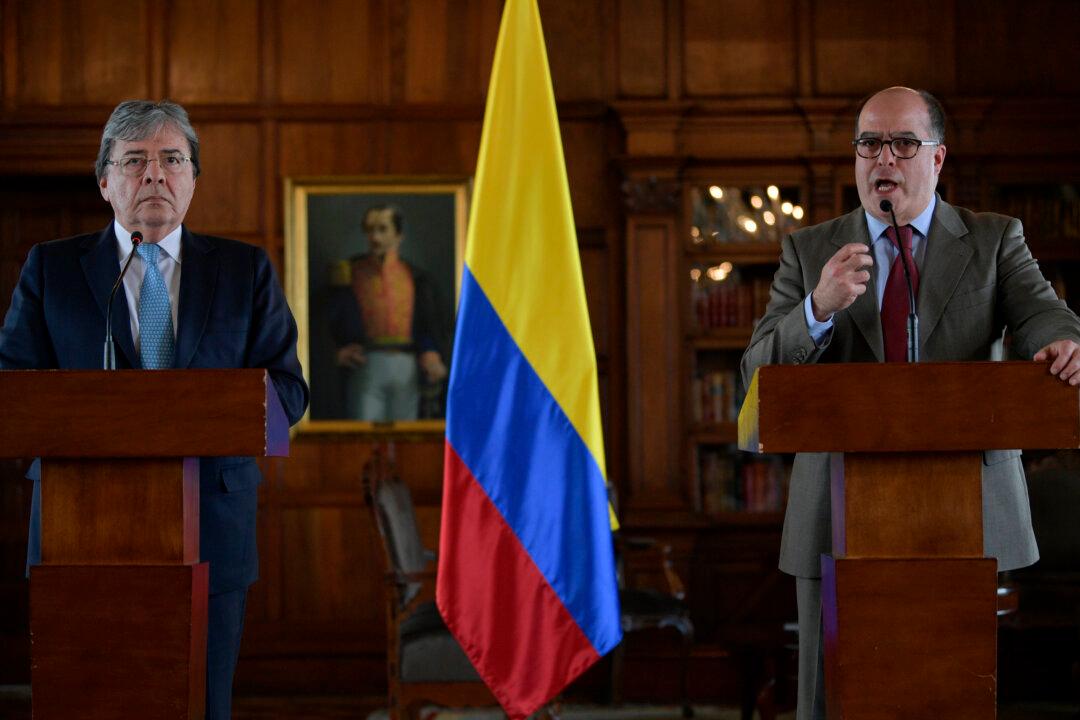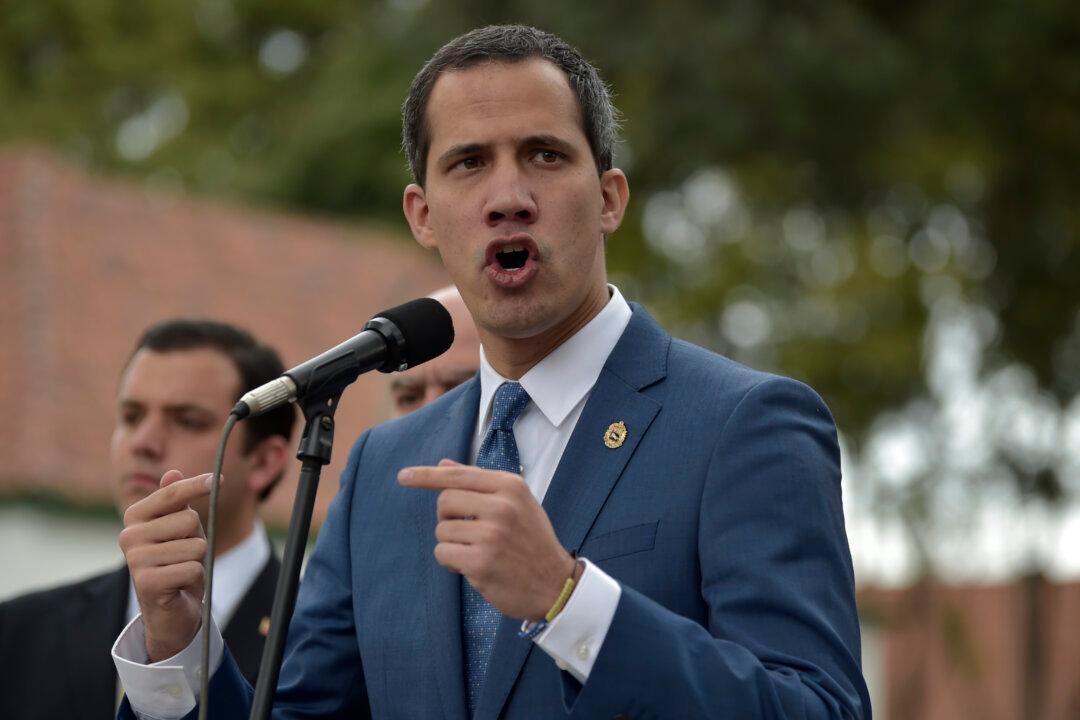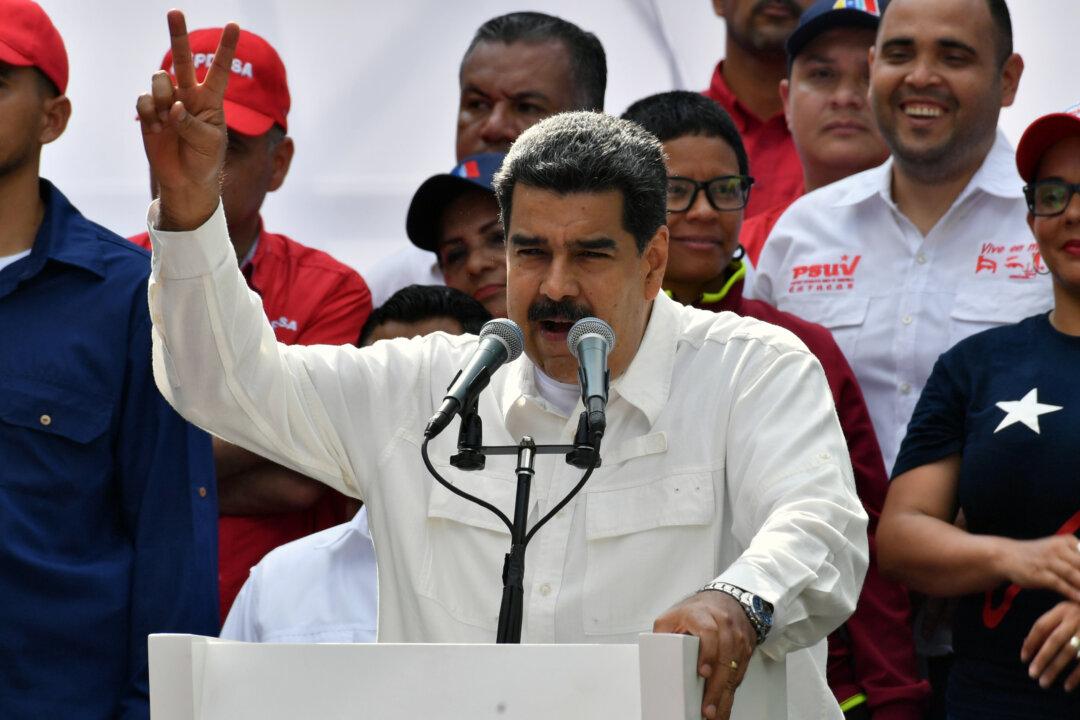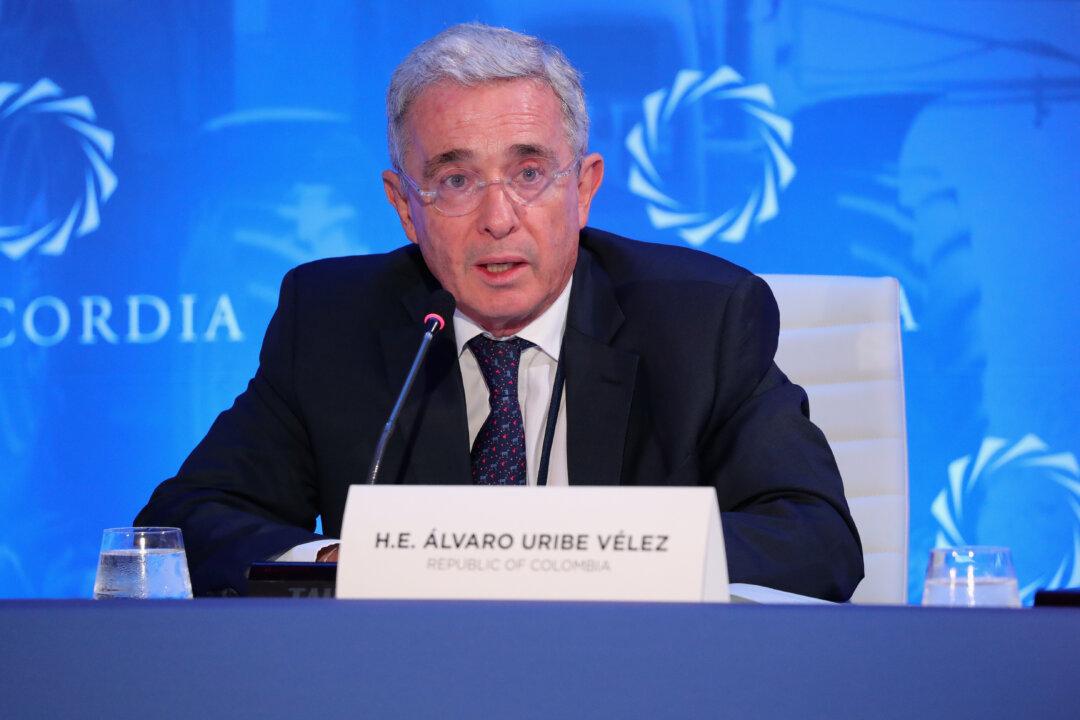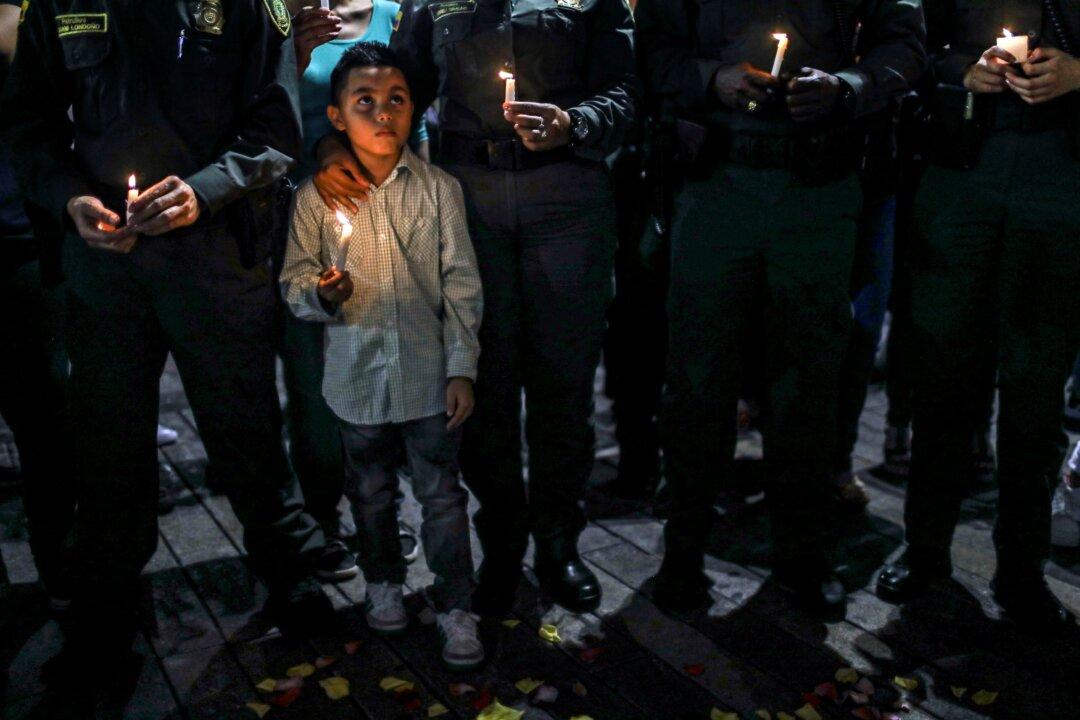BOGOTA, Colombia—Tensions have escalated between Colombia and neighboring Venezuela following the invocation of a regional defense pact by the United States and other Latin American allies that would support Colombia in the case of a regional conflict.
The United States and other signatories triggered the Inter-American Treaty of Reciprocal Assistance (TIAR) on Sept. 11 after a number of bellicose exchanges between Venezuela and Colombia, including an announcement from Venezuelan regime leader Nicolás Maduro that he would be sending 150,000 troops to the Colombian border.
